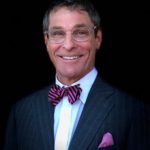The reasons for giving up cigarette smoking — or never starting — are well-known, and don’t need to be revisited in detail here. The science behind our understanding of smoking’s role in disease and mortality is long since settled in every category of medicine.
But it’s worth taking a closer look at the plastic surgeon’s view of smoking, because candidates for aesthetic surgery will ask the question fairly often: Can a smoker get a facelift, or a rhinoplasty, or any other cosmetic procedure?
The short answer is, we’d rather you didn’t do both at the same time. In fact, if you’re a smoker, we’re going to insist that for certain procedures and treatments, quitting smoking completely well ahead of time — as in weeks — is mandatory, as is staying away from cigarettes while you heal.
Ideally, we’d love it if, once you’ve stopped for our purposes, that you’ll stay smoke-free for your own health and well-being, and never pick up the habit again.
The Surgeon’s Enemy
Surgeons — all surgeons — dislike smoking for a number of reasons. One is that nicotine restricts blood flow, and if blood is not carrying oxygen freely through smaller vessels, to body tissues at the site of a surgical incision, healing slows. Complications can arise.
Along with its well-established connections to heart and lung disease, stroke, and cancer, smoking is also associated with necrosis — the formation of dead tissue around a surgical implant. Necrosis is as unpleasant as it sounds: It can lead to permanent scarring and complications, which in turn may require corrective surgery or outright removal of an implant.
Smoking and Appearances
Then, of course, there’s smoking’s unfortunate role in keeping plastic surgeons busy. Fine lines and wrinkles around the lips are often caused by smoking, which dehydrates the skin and speeds up the aging process. Tobacco can damage the body’s sub-surface collagen and weaken the skin’s elasticity. Lip wrinkles form earlier, along with eyelid bags and jowls.
A Case Western Reserve University study of 79 pairs of twins, one who smoked and one who didn’t, showed that the smokers aged much more rapidly.
In the final analysis, smoking is not a deal-breaker for treatment. But it’s an unwanted consideration for any conscientious surgeon. And it’s not helpful for people who want their cosmetic procedure to look as good as possible, for as long as possible. Although we welcome returning patients and repeat business, we’re happier when it’s not because smoking interfered with post-operative healing or shortened the lifespan of a perfectly good facelift.
Dr. Edwin F. Williams is certified by the American Board of Facial Plastic and Reconstructive Surgery, the American Board of Otolaryngology and he is a Fellow of the American College of Surgeons, the American Academy of Facial Plastic and Reconstructive Surgery and the American Academy of Otolaryngology – Head and Neck Surgery. If you’re considering a cosmetic procedure, and want to consult with an experienced New York facial plastic surgeon, call the Williams Center at 1-800-742-2797.
